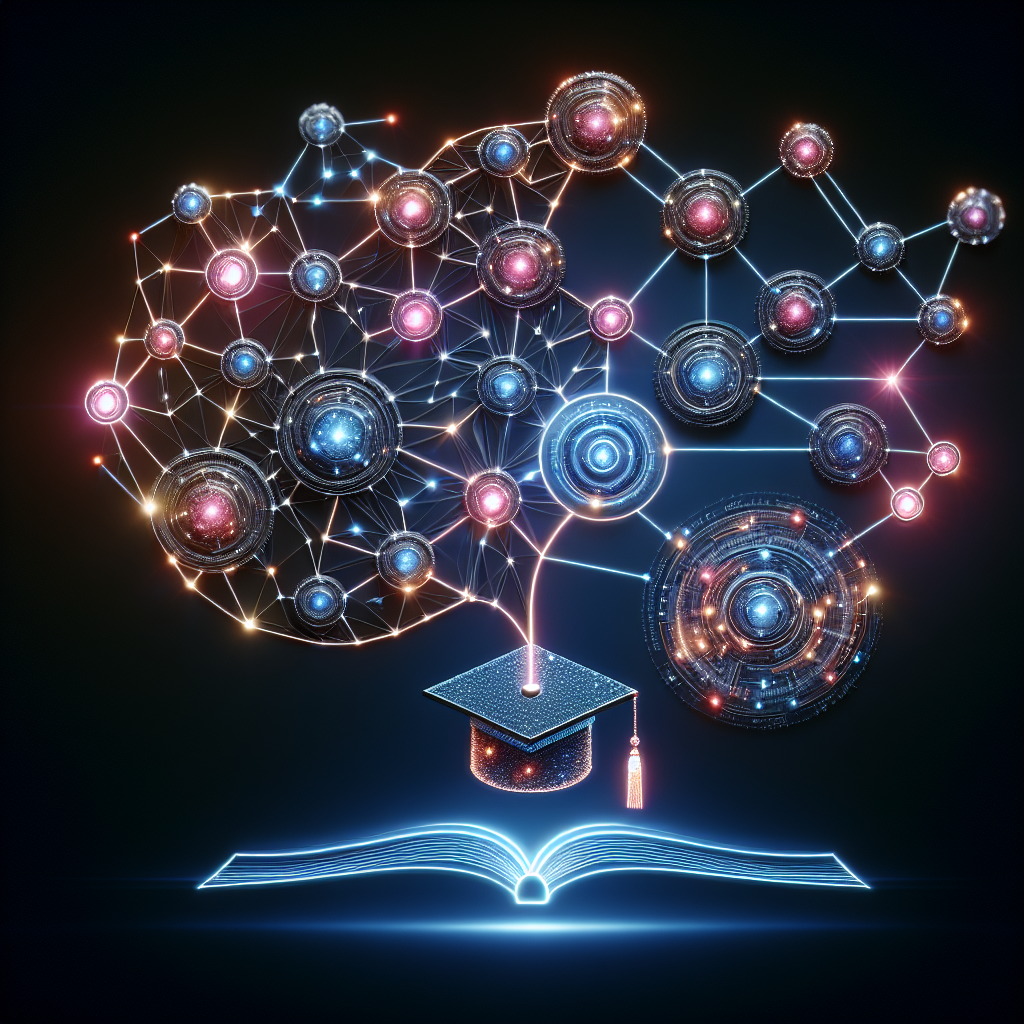The Potential of AI and Machine Learning in Personalized Learning
Personalized learning is a teaching approach that tailors instruction to the individual needs, skills, and interests of each student. This method of teaching has gained popularity in recent years as educators strive to meet the diverse needs of their students and help them reach their full potential. With the advancements in artificial intelligence (AI) and machine learning, personalized learning has the potential to revolutionize education by providing students with adaptive and customized learning experiences.
AI and machine learning algorithms have the ability to analyze vast amounts of data to identify patterns and trends, which can be used to personalize instruction for each student. These technologies can track student progress, identify areas of strength and weakness, and recommend specific learning activities to help students improve in areas where they are struggling. By leveraging AI and machine learning, educators can provide students with targeted interventions and support, ultimately leading to improved academic outcomes.
One of the key benefits of personalized learning powered by AI and machine learning is the ability to provide immediate feedback to students. Traditional teaching methods often rely on assessments that are administered days or even weeks after instruction, making it difficult for students to receive timely feedback on their progress. With AI-powered personalized learning platforms, students can receive instant feedback on their work, allowing them to make corrections and improvements in real-time. This immediate feedback can help students stay engaged and motivated, as they can see the impact of their efforts right away.
Another advantage of AI and machine learning in personalized learning is the ability to create adaptive learning paths for students. These technologies can analyze a student’s performance on assessments and recommend specific activities or resources that are tailored to their individual needs. For example, if a student is struggling with a particular concept, the AI algorithm can recommend additional practice exercises or instructional videos to help them master the material. By providing students with personalized learning paths, educators can ensure that each student receives the support and resources they need to succeed.
AI and machine learning can also help educators identify at-risk students and provide early interventions to prevent academic failure. These technologies can analyze student data to identify patterns that may indicate a student is struggling, such as missed assignments, low test scores, or a lack of engagement in class. By flagging these students early on, educators can provide targeted interventions, such as additional tutoring, counseling, or academic support, to help them get back on track. This proactive approach to student support can help prevent academic failure and ensure that all students have the opportunity to succeed.
Furthermore, AI and machine learning can help educators differentiate instruction to meet the diverse needs of their students. By analyzing student data and preferences, these technologies can recommend personalized learning activities that cater to each student’s unique learning style, interests, and abilities. For example, a student who excels in visual learning may be recommended to watch a video tutorial, while a student who prefers hands-on activities may be directed to a project-based assignment. By providing students with personalized learning experiences, educators can create a more engaging and effective learning environment that caters to the individual needs of each student.
Despite the many benefits of AI and machine learning in personalized learning, there are also challenges and concerns that must be addressed. One of the main concerns is the potential for bias in AI algorithms, which can lead to unfair or discriminatory outcomes. If AI algorithms are trained on biased data or programmed with biased assumptions, they may inadvertently perpetuate existing inequalities in education. To mitigate this risk, educators and developers must ensure that AI algorithms are transparent, accountable, and regularly audited to ensure fairness and equity in personalized learning.
Another challenge is the need for educators to develop the necessary skills and knowledge to effectively integrate AI and machine learning into their teaching practices. Many educators may be unfamiliar with these technologies or unsure of how to use them to enhance personalized learning. To address this challenge, professional development opportunities and training programs can be provided to help educators build their capacity in using AI and machine learning tools effectively. By equipping educators with the skills and knowledge they need, schools can ensure that personalized learning initiatives are successful and sustainable in the long term.
In conclusion, the potential of AI and machine learning in personalized learning is vast, with the ability to revolutionize education and provide students with tailored, adaptive, and engaging learning experiences. By leveraging these technologies, educators can provide students with immediate feedback, create adaptive learning paths, identify at-risk students, differentiate instruction, and ultimately improve academic outcomes for all students. However, it is important to address challenges such as bias in AI algorithms and the need for educator training to ensure that personalized learning initiatives are successful and equitable for all students.
FAQs
Q: How can AI and machine learning personalize learning for each student?
A: AI and machine learning algorithms can analyze student data, track progress, and identify areas of strength and weakness to provide personalized learning activities tailored to each student’s individual needs.
Q: What are some of the benefits of personalized learning powered by AI and machine learning?
A: Some benefits include immediate feedback for students, adaptive learning paths, early interventions for at-risk students, and differentiated instruction based on each student’s learning style and preferences.
Q: What are some challenges of using AI and machine learning in personalized learning?
A: Challenges include the potential for bias in AI algorithms, the need for educator training and professional development, and ensuring transparency and accountability in the use of these technologies.
Q: How can educators address the challenges of using AI and machine learning in personalized learning?
A: Educators can address these challenges by ensuring transparency and accountability in AI algorithms, providing training and professional development for educators, and regularly auditing personalized learning initiatives to ensure fairness and equity.

